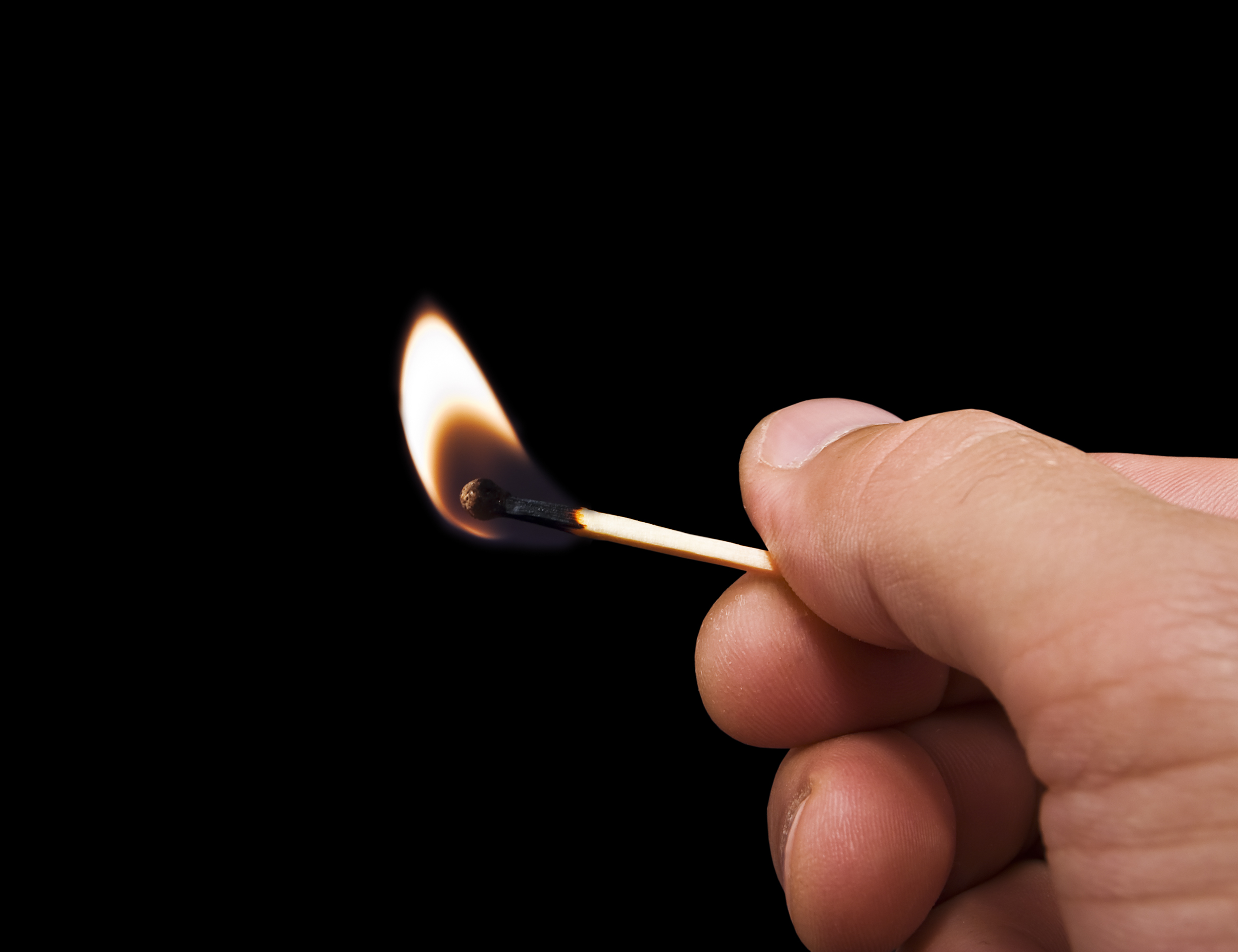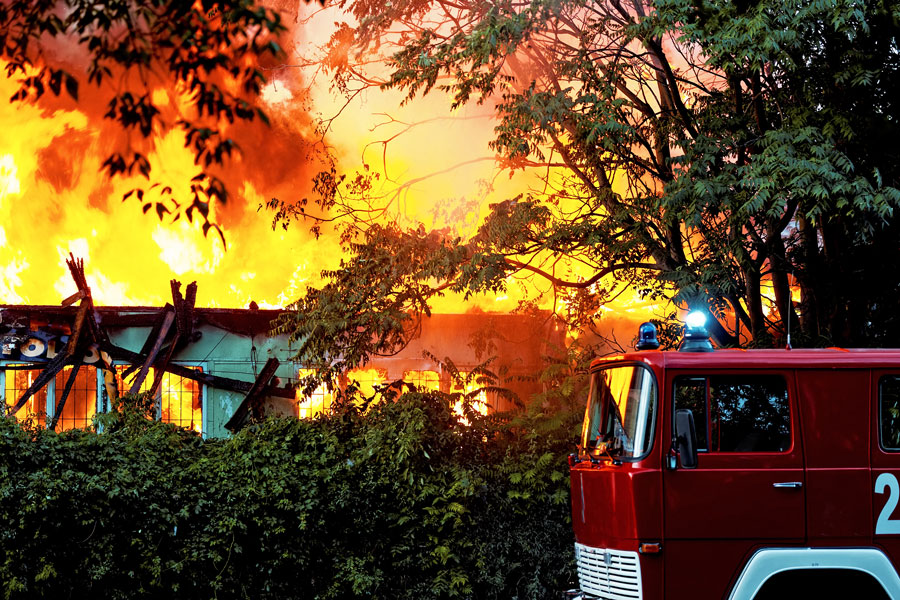If you or a loved one find yourselves in a difficult situation, we understand the urgency and stress that comes with it. At Angels Bail Bonds, we specialize in providing the support and assistance needed to secure bail for felony arson charges.
Learn the basics about the bail process for a felony arson charge, and then contact Angels Bail Bonds today. Let us be your trusted partner in navigating the bail process for felony arson or malicious arson charges. We are here to help you regain your freedom and prepare for your legal journey.
What Is Bail?
Bail in California refers to the amount of money or property that a defendant in custody or their surety (a person responsible for the defendant’s appearance in court) must deposit with the court to secure the defendant’s release from jail while awaiting trial.
The purpose of bail is to ensure that the defendant appears in court for all scheduled hearings and does not flee before the trial but avoids jail time. A bail schedule or table determines bail amounts, but a judge can deviate from the schedule based on various factors, including the severity of the offense, the defendant’s criminal record, and whether the defendant is a flight risk. If the defendant fails to appear in court, the bail is forfeited, and a warrant may be issued for their arrest.
What Are Bail Bonds?
When you find yourself in a situation where you can’t afford to pay for your bail, bail bonds might be the solution for you. A bail bondsman, who a bail bond company employs, will charge you a fee in exchange for providing the payment. Bail bonds companies in California charge only 10% of the total bail amount to post-bond for a defendant in custody. So, if the bail amount is $20,000, the bondsman will charge $2,000 instead of the full amount. While this may still seem like a lot of money, it’s much more affordable than paying the entire bail amount, especially on extremely high bail amounts for some serious felonies.
Those rates can be as high as 20% for some immigration and federal charges because these rates are set by law, and all bail companies must charge the same amount. Despite the costs, using a bail bondsman can be a lifesaver for those who cannot afford to be released from custody on bail.
What Happens At A Bail Hearing?
The amount of bail is normally set at the person’s initial court appearance, often known as the arraignment stage or pre-trial detention. A judge can either release a person on their own recognizance (OR) with a promise to appear in court at a later date or deny their OR and impose bail.
If the charges are infraction offenses or even some misdemeanor offenses—such as a DUI with no accidental corporal injuries or significant property damage— the person will usually be released without bail after being arrested. More serious felony charges, like assault with a deadly weapon or even murder, will not have OR as an option and will only be released from custody on bail.
You must pay the bail amount or post a bail bond on the bail schedule. An arresting officer might ask for a higher bail amount than what the bail schedule suggests.
What Factors Influence a Defendant’s Bail Amount?
The bail bond process starts when a defendant is in front of a judge to determine bail. Then, several factors are put into play, including the severity of the crime, criminal record, whether the defendant is a flight risk, community ties, financial resources, potential danger to public safety, and even mental health are considered when determining bail amount.
The bail schedule further gives guidance for all criminal charges, with the judge having some leeway in the specific amounts, as mentioned. And even if they’re approved for release from jail on bail, the defendant might have to be placed under house arrest, be prohibited from owning any deadly weapons, or placed under electronic monitoring.
Have you been charged with criminal Felony, Arson PC 451?

If you’ve been charged with a criminal offense like felony arson, you or a loved one must contact the experts at Angels Bail Bonds immediately. Our team of bail bondsmen and criminal defense lawyers provide assistance during pre-trial detention at no extra cost, including nationwide.
What is Felony Arson?
Under California Penal Code 451, arson is defined as the willful and malicious act of setting fire to or burning any structure, forest land, or property. It is considered a serious criminal offense and is punishable by law, and also known as malicious arson, to distinguish it from reckless burning or reckless arson.
To be convicted of malicious arson under California law, the following elements must be proven beyond a reasonable doubt:
- The Willful and Malicious Intent to Set a Fire: The defendant must have intentionally and unlawfully set fire to a structure, forest land, or property. “Willful” means that the act was done willingly and intentionally, while “malicious” refers to the act being done with the intent to cause damage, injury, or fraud for financial gain, vexation, or harm.
- Structure, Forest Land, or Personal property: The fire must have been set to a structure, which includes any building, bridge, tunnel, or other man-made objects that are intended for habitation, occupancy, or use. Forest land refers to any land covered by trees, vegetation, or brush. Property refers to any personal or real property, such as vehicles, crops, or machinery.
- Awareness of the Potential Consequences: The defendant must have been aware of the potential consequences of their actions, such as the destruction of property, endangerment of lives, or the creation of a risk of injury or death to others.
PC 450 in the code also defines what several key terms mean, like property, inhabited, recklessly, and malicious, with inhabited meaning “currently being used for dwelling purposes,” and that can be anything from a trailer to a boat or vehicle meant as a home. It doesn’t matter if it’s occupied or not at the moment of the arson.
Types of Felony Arson Charges in California
There is only one type of felony arson in California, malicious arson, although there can be other arson crimes, like reckless burning, which is also called reckless arson and can be a felony, depending on the circumstances.
Felony Malicious Arson
Arson under PC 451 will always be a felony, defined as the willful and malicious act of setting fire to or burning any structure, forest land, or real and personal property. Because of the need for it to be “malicious,” it is sometimes referred to as malicious arson to distinguish it from other types like reckless or aggravated arson.
Aggravated Arson
While still under Penal Code Section 451, PC 451.5 establishes the crime of aggravated arson, which is the setting of fire with the willful and malicious intent to cause bodily injury to a person. The physical or corporal injury can be either directly from the fire or as an expected result from it. We can, therefore, summarize aggravated arson as malicious arson where there is corporal injury inflicted on someone.
(a) A person who willfully, maliciously, deliberately, with premeditation, and with intent to cause injury to one or more persons, or to cause damage to property under circumstances likely to produce injury to one or more persons, or to cause damage to one or more structures or inhabited dwellings, sets fire to, burns, or causes to be burned, or aids, counsels, or procures the burning of any residence, structure, forest land, or property, is guilty of aggravated arson if one or more of the following aggravating factors exists:
(1) The defendant has been previously convicted of arson on one or more occasions within the past 10 years.
(2) (A) The fire caused property damage and other losses in excess of eight million three hundred thousand dollars ($8,300,000).
(B) In calculating the total amount of property damage and other losses under subparagraph (A), the court shall consider the cost of fire suppression. It is the intent of the Legislature that this paragraph be reviewed within five years to consider the effects of inflation on the dollar amount stated herein.
(3) The fire caused damage to, or the destruction of, five or more inhabited structures.
Reckless Burning or Reckless Arson
There is also Section PC 452 of the Penal Code, which is a “less severe” form of arson, where the cause is “reckless” instead of malicious or willful. They were aware that their actions could lead to a risk of a fire, ignored that risk, and knew it was a gross deviation from what a reasonable person would do in the same situation.
According to PC 452 in the Penal Code, reckless arson or burning is:
A person is guilty of unlawfully causing a fire when he recklessly sets fire to or burns or causes to be burned, any structure, forest land or property.
What does California law define as “recklessly”?
(f) “Recklessly” means a person is aware of and consciously disregards a substantial and unjustifiable risk that his or her act will set fire to, burn, or cause to burn a structure, forest land, or property. The risk shall be of such nature and degree that disregard thereof constitutes a gross deviation from the standard of conduct that a reasonable person would observe in the situation. A person who creates such a risk but is unaware thereof solely by reason of voluntary intoxication also acts recklessly with respect thereto.
Penalties in Felony Arson Cases

Arson can be charged as either a misdemeanor or a felony, depending on the specific circumstances of the offense. The potential penalties for arson in California are as follows:
- Misdemeanor Arson: If the arson offense involved the burning of an inhabited structure, the potential penalties include up to one year in county jail and/or a fine of up to $1,000. For all other misdemeanor arson offenses, the potential penalties include up to six months in county jail and/or a fine of up to $1,000.
- Felony Arson: If the arson offense involved the burning, with malicious intent, of an inhabited structure or caused great bodily or corporal injury to another person or a law enforcement official like a police officer, the potential penalties include imprisonment in state prison for up to nine years. For all other felony arson offenses, the potential penalties include imprisonment in state prison for up to three, five, or eight years. Many prosecutors might go for an additional charge of voluntary manslaughter against the arsonist if they caused the death of a person through the fire they started.
Section 451.5 of the Penal Code further elaborates on the penalties involved under certain circumstances:
(a) Notwithstanding any other law, any person who is convicted of a felony violation of Section 451 shall be punished by a three-, four-, or five-year enhancement if one or more of the following circumstances is found to be true:
(1) The defendant has been previously convicted of a felony violation of Section 451 or 452.
(2) A firefighter, peace officer, or other emergency personnel suffered great bodily injury as a result of the offense. The additional term provided by this subdivision shall be imposed whenever applicable, including any instance in which there is a violation of subdivision (a) of Section 451.
(3) The defendant proximately caused great bodily injury to more than one victim in any single violation of Section 451. The additional term provided by this subdivision shall be imposed whenever applicable, including any instance in which there is a violation of subdivision (a) of Section 451.
(4) The defendant proximately caused multiple structures to burn in any single violation of Section 451.
(5) The defendant committed arson as described in subdivision (a), (b), or (c) of Section 451 and the arson was caused by use of a device designed to accelerate the fire or delay ignition.
It is important to note that the above information is a general explanation of arson under California Penal Code 451. The specific penalties and consequences can vary based on the circumstances of each individual case, like enhancements if the victim is a peace officer or has suffered injury, a defendant’s criminal record, and other factors. Therefore, it is advisable to consult with a criminal defense attorney for legal advice and guidance if facing charges related to arson.
Average Bail for Felony Arson
Felony arson in the California Penal Code is PC 451, and initial bail is set on the bail schedule at $50,000. In many counties, like Los Angeles County, it can be as high as $100,000.
You Need an Experienced Bail Bond Agent who Specializes in Felony Arson Defense
The bail bond process for a felony arson charge is serious and without expert help at your side, as the standard bail for felony arson is $50,000 to $100,000. Nonetheless, a bail bond company and a criminal defense attorney can aid you during this difficult time and help you and your loved one obtain that bail money.
Common Legal Defense Against Malicious Arson Charges
In defending against arson felony offense charges in California, a defense lawyer may employ several strategies.
Firstly, they may challenge the evidence presented by the prosecution. This could involve questioning the reliability of witness testimonies, arguing it’s a case of mistaken identity, challenging the accuracy of forensic evidence, or highlighting any inconsistencies or gaps in the prosecution’s case. The defense lawyer may also investigate whether there were any alternative causes of the fire, such as electrical faults or natural events, to establish reasonable doubt.
Secondly, another defense argument may focus on the defendant’s state of mind. They might argue that the defendant did not have the intent to commit arson, which is a crucial element of the offense. For example, they may present evidence to suggest that the defendant was acting in self-defense or was mentally incapable of forming the intent required for the crime. The defense lawyer may argue that there was no malicious intent, as required for felony arson charges, and that any fire started was accidental or unintentional.
Lastly, the defense counsel may challenge the legality of any searches or seizures conducted by law enforcement during the investigation. If the evidence was obtained through an illegal search or without a proper warrant, it may be suppressed and deemed inadmissible in court. This could significantly weaken the prosecution’s case and potentially lead to a dismissal of charges or a reduction in severity.
It is important to note that defense arguments and strategies can vary depending on the specific circumstances of the case and the evidence presented. A skilled defense lawyer will carefully evaluate all available options to develop the most effective defense strategy tailored to the defendant’s situation.
Free Consultation & Case Review
Do you know someone who has been arrested for felony arson? Look no further because we are here to help. At Angel Bail Bonds, we work with experienced attorneys and bail bondsmen to be your best option for any case, be it bail for assault, bail for battery, bail for burglary, or even for arson. We offer flexible payment plans and affordable rates to make the bail process more manageable for you and your loved ones. If you have any questions about how bail laws and the bail bond process work in California or if you need assistance helping a loved one, don’t hesitate to call us today.






